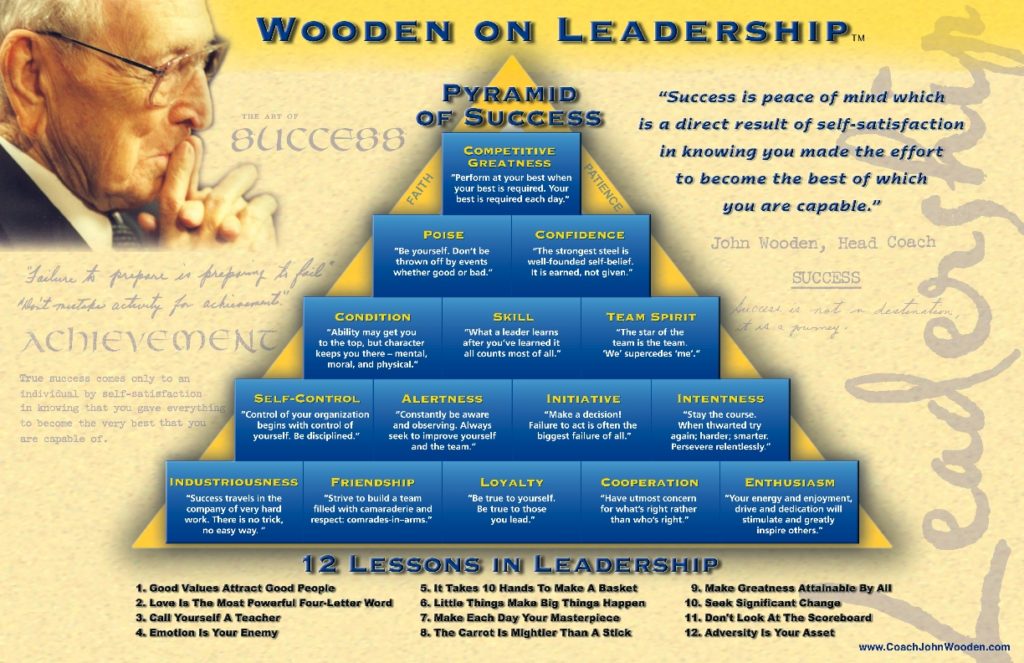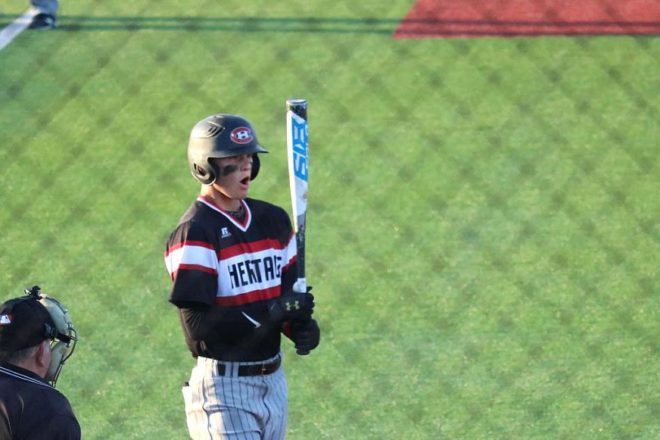There was only one thought running through my mind: Put one foot in front of the other and just keep moving. My feet hurt. My back hurt. Everything hurt.
Here I was, running the Lighthouse 100-mile run in Northern Michigan (no, that’s not a typo — 100 miles!).
Under my own free will. No gun pointed at back, forcing me to endure this. No lost bet. Some would call this crazy (which let’s be honest, it is a little crazy). But I had my reasons.
And while this was certainly an experience I’ll never forget, and one of the toughest physical and mental challenges I’ve conquered in my life, checking an item off my bucket list wasn’t the only thing on my mind that weekend.
Completing that ultramarathon one step at a time reminded me of a foundational teaching of mental performance that is often glossed over in favor of fancy, new, “cutting-edge” coaching strategies.
Something that’s brushed aside with talk of winning games and championships. But a lesson that, if applied consistently in your coaching, holds the key to unlocking your athletes’ potential and helping them achieve TRUE excellence.
“Excellence is being at your best when it means the most — every play and every day.”
Climbing the mountain of excellence is a symbolic concept I use often when teaching others about mental performance. The summit of the mountain represents your goal. The mountain represents the obstacle one must conquer to reach it.
It’s a simple concept that seems to resonate well with people.
But I’m afraid many people have misconstrued — or simply forgotten — what “excellence” really is.
It’s easy to do in a world that is obsessed with measurable outcomes. Did you win the championship… or not?
But what if, in the pursuit of TRUE excellence, that’s the wrong question? And what if focusing on that outcome as your target for “excellence” is actually a disservice to those you coach?
Legendary UCLA basketball coach John Wooden referred to excellence as “competitive greatness” and placed it at the top of his Pyramid of Success. He concluded: “Success is peace of mind which is a direct result of self-satisfaction in knowing you did your best to become the best that you are capable of becoming.”

Image credit: http://www.coachwooden.com/pyramid-of-success
Powerful words. And true.
Which begs the question… “Are you effectively guiding your athletes to true success?”
After being invited into the locker rooms of some of the greatest coaches of our time over the past 15 years, I’ve learned they all believe “success” extends beyond winning games.
They too believe that true success isn’t just about a “top of the mountain” outcome.
Through my interactions with great coaches across the world, and through working with top performers as a mental performance coach, I’ve learned that one of the most powerful concepts you can teach those you coach is this: Excellence is being at your best when it matters most — every play and every day.
I’m not suggesting that setting BIG goals, like winning a championship — or any other outcome-based goal is bad. It’s not.
But stopping there will cause you to miss out on truly molding those you coach for excellence now and in the future.
And this is why I suggest a shift:
Moving the pursuit of excellence from a specific “outcome” to “Peace of mind which is a direct result of self-satisfaction in knowing you did your best to become the best that you are capable of becoming.”
If we did that, how would doing that change the way we coach and even help us to win more?
My experience suggests that the best coaches spend a lot of time and energy developing their athletes’ ability to focus on the moment, with the intent of developing a skill set that allows them to be at their best when it matters most — every play and every day.
With that in mind, let’s explore how you can use this concept of success to help those you coach max-out their potential and achieve true excellence.
Use this samurai warrior mindset secret to help your athletes develop an ironclad present moment focus
“Taking an enemy on the battlefield is like a hawk taking a bird. Even though it enters into the midst of a thousand of them, it gives no attention to any bird other than the one it has first marked.” -Yamamoto Tsunetomo, 18th Century Samurai Warrior
The famous samurai warriors of Japan were some of the world’s first masters of the mental game. They were taught to “live being true to the single purposefulness of the moment.”
What samurai understood very well is that the time is now and the place is here.
Today, I’d like to share a mental performance training strategy you can use to help athletes perform up to their potential — and achieve true excellence by developing a similar awareness and focus for THIS play/pitch/etc.
The goal of this exercise is simple: Train a present-moment focus so that your athletes are able to develop a skill set that allows them to perform their best — consistently — when it matters most.
I have a number of go-to strategies for training this particular mental performance skill set. Today, I’ve selected my favorite exercise you can integrate immediately to start seeing a positive turnaround.
The 30-Second Drill
This is an excellent strategy to not only help increase an athlete’s awareness of the present moment, but to also allow them to recognize the power of directing 100% of their focus to just ONE THING.
This exercise was taught to me by on of my mentors, Dr. Ken Ravizza, and it’s called the “30-second drill.”
Ready to give it a shot? Here we go…
As you read this, I want to invest 30 seconds of your time as if your life depended on what you are reading. Sit up straight in your chair with your feet flat on the floor and LOCK IN! Now, I want you to look at each word and hear it as if I am there inside your head speaking to you.
I want you to read every word with a commitment that if you could repeat what you just read, you would win a million dollars.
Ready?
GET SET!
GO!
Give me 30 seconds.
For a short period of time, you can do anything you want with your levels of attention, energy, and focus. Right now, the focus you are reading with is different than it was 10 seconds ago — feel that.
You see, you are more locked in right now than you were 15 seconds ago — recognize that. You are currently demonstrating your ability to be into the present moment and play one pitch/play/etc. at a time.
If you can focus like this without someone having to ask you, you are experiencing the result of present-moment-focus and mental toughness.
So, while you read this article today, I want you to come back to this level of focus as many times as you can and lock in for 30 seconds at a time.
That was 30 seconds! You can now space out for a moment.
Whew… I hope you felt the intensity of those 30 seconds.
If I asked you for 10 minutes of total undivided attention with that level of focus, you’d probably say: “Cain, you gotta be crazy. There is no way I can read with that intensity for 10 minutes.”
And I would agree… And then I’d tell you that you could do it for 30 seconds at a time 20x and that would be 10 minutes.
It is the same way for those you coach. You don’t lock in for an entire game or an entire strength-training session; you lock in for ONE play or ONE set and then do that again play by play, set by set until the game or workout is over.
Up next, we’ll look at how you can integrate this into your coaching for maximum impact.
How to apply the 30-second drill to your coaching
If you discovered a safe, proven exercise that would increase your athlete’s vertical jump by five inches, what would you do?
Make sure you’re integrating it into your programming regularly, of course!
Mental performance “exercises” like the 30-second drill are no different. To maximize the impact this can have on your athletes, you need to incorporate it into your “coaching vocabulary” on a regular basis.
Some ideas include:
- Before practice as your team is warming up/stretching.
- During pre-game speeches and during timeouts during a competition.
- A verbal cue to any athlete who appears to be losing focus/getting distracted in order to “lock” them back into the present and ramp up their focus.
- Any other time you can work it in on a regular basis so that it’s so ingrained that it becomes second nature for your athlete’s to “check-in” and bring an “all-in”, singular focus on the present!
Is practicing this exercise going to help you win a championship this year?
Maybe — maybe not.
But I can guarantee this: Teaching those you coach to develop the skill of a laser-like present moment focus will serve them each day in their sport.
And it will also serve them in the classroom and pretty much every other endeavor they pursue leading forward. Over time, with practice, you — and those you’re coaching — will start to notice they are able to be at their best when it matters most, more consistently.
If that’s not worth a little extra effort to work this into your coaching, I don’t know what is.
Challenge those you coach to become samurai warriors of the mental game, someone who is totally immersed in the present moment. Teach them to heighten their awareness, so when they get distracted or space out, they can recognize their focus has been compromised.
Then release and refocus back to the present.
YOUR NEXT MOVE: IF YOU WANT TO TAKE YOUR COACHING TO THE NEXT LEVEL, YOU NEED TO MASTER THE MENTAL SIDE OF PERFORMANCE
Knowing the what, when, and how of coaching mental performance—and trying to fit all of the pieces together on your own—can be burdensome.
That’s why I created the Mental Performance Mastery (MPM) Coaching Certification. Inside the MPM Certification, I’ll teach everything you need to add this crucial skill set to your coaching toolbox.
You will learn how to help your athletes and clients overcome mental barriers that trip them up and build the habits, mindset, and behaviors they need to be at their best when it matters most.
Not only will you develop a deep knowledge of the ten most valuable mental skills needed for mental performance mastery, but you’ll also have a proven method for consistently and predictably developing these skills in those you coach.
The MPM Certification will open to new students for a limited time only twice a year (May and November). Join the free Insider’s List below to save $200 on the certification and be the first to know when it goes live.



